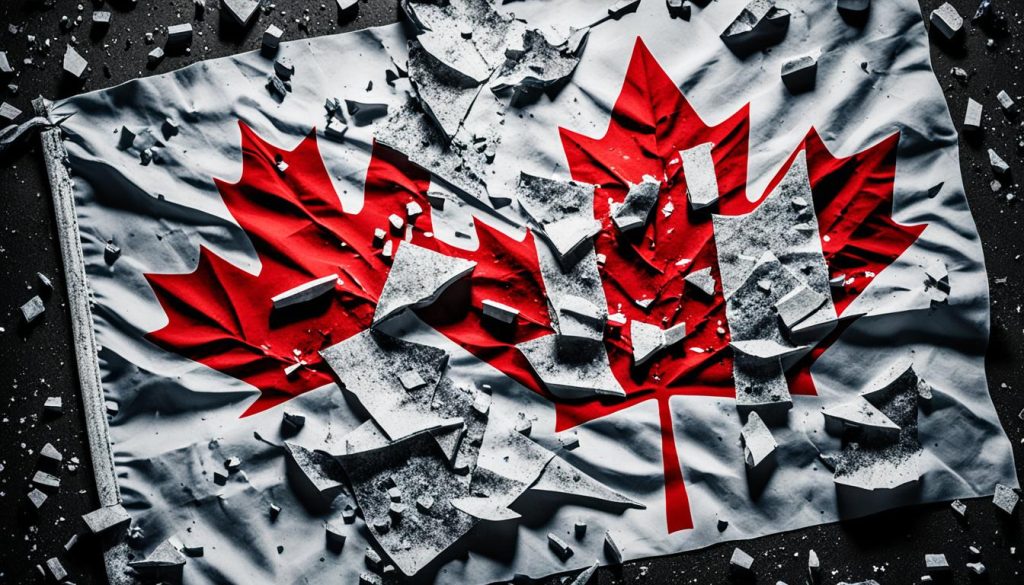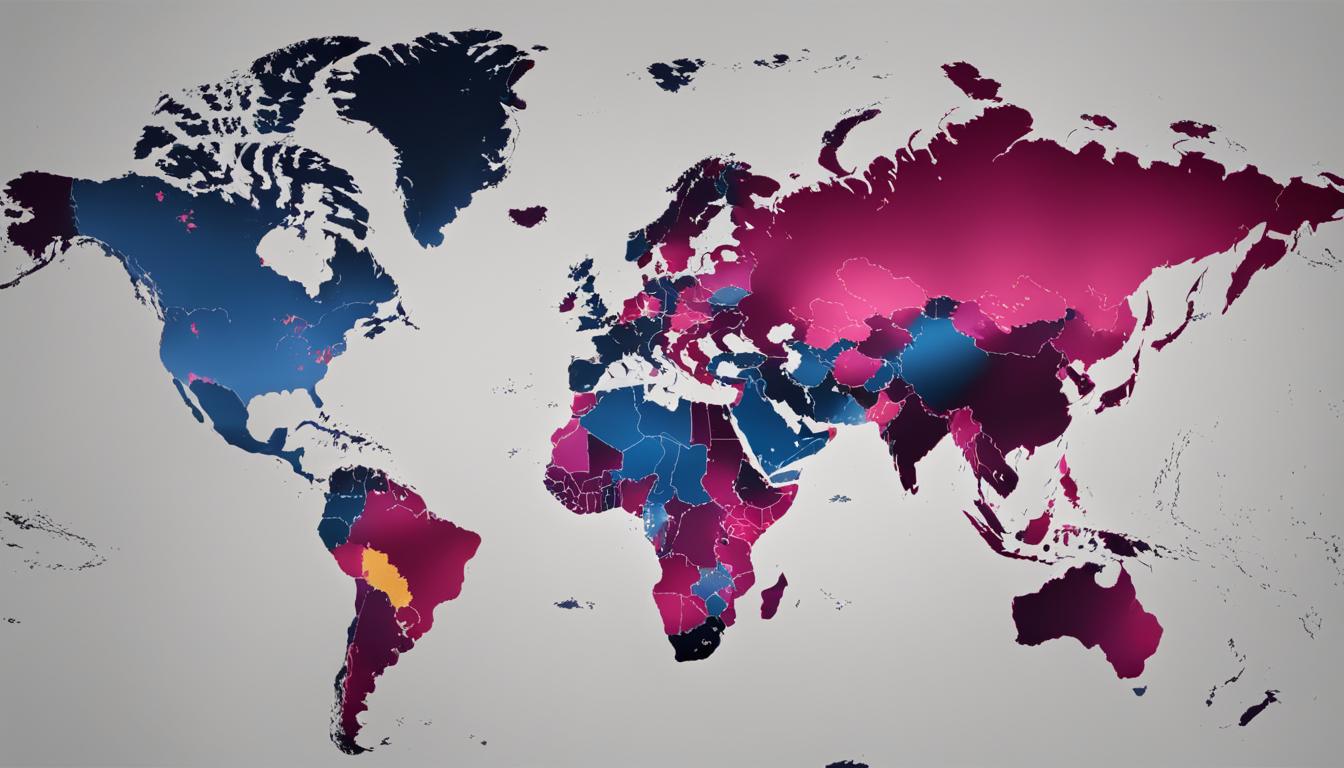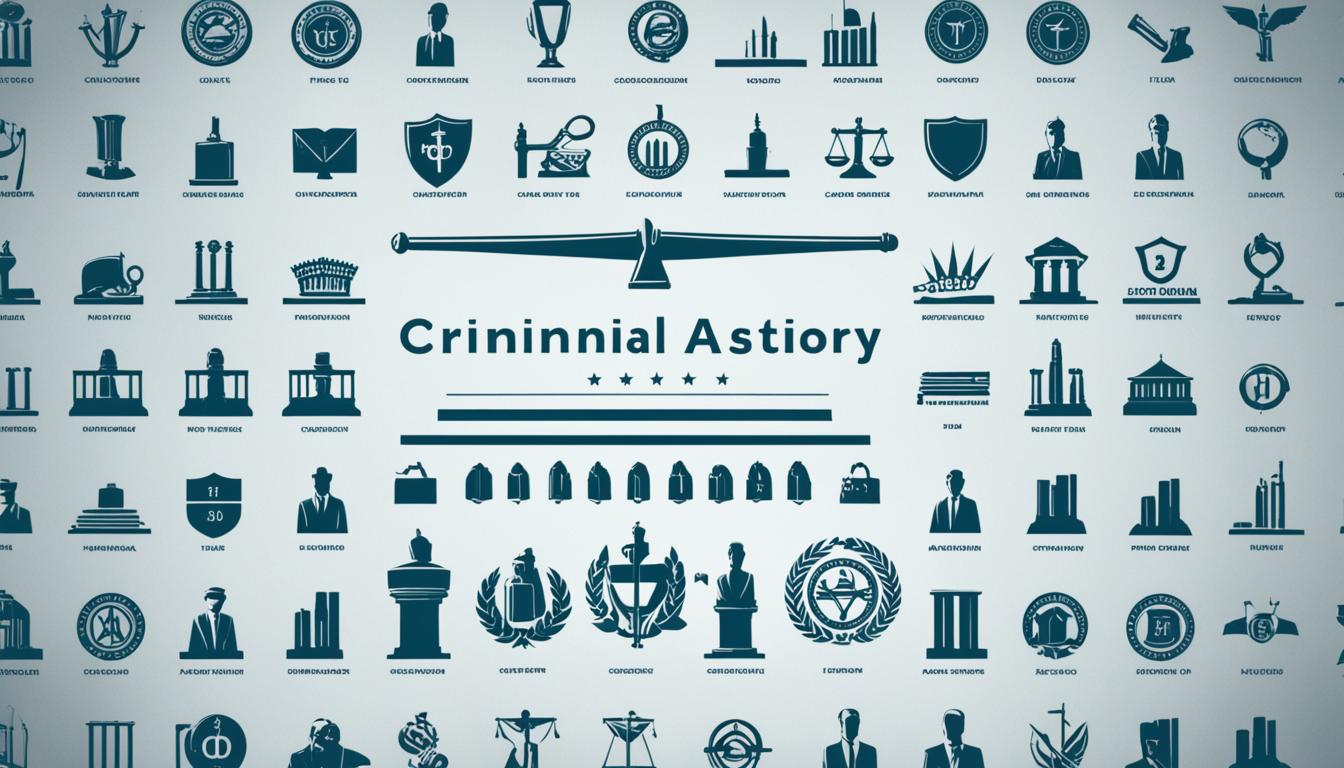Is Crack Legal in Canada? Drug Law Insights
Did you know that an exemption to drug laws in Canada allows individuals to possess up to 2.5 grams of crack cocaine? This surprising fact sheds light on the unique approach that Canada has taken towards drug possession and highlights the ongoing debate surrounding the legality of crack cocaine in the country.
While this exemption does not legalize crack cocaine or other illicit drugs, it decriminalizes their possession for personal use. Currently being tested in the province of British Columbia, this three-year trial period aims to reduce the fear of arrest among individuals who use drugs and provide them with access to health services instead.
Key Takeaways:
- Canada allows individuals to possess up to 2.5 grams of crack cocaine under an exemption to drug laws.
- The exemption decriminalizes possession for personal use but does not legalize crack cocaine.
- The trial period is currently being conducted in British Columbia to test the impact of decriminalization on drug users.
- Some experts argue that the exemption should be accompanied by an expansion of addiction treatment services.
- The financial and social impact of decriminalization and the potential risks associated with crack cocaine usage are also areas of concern.
The Impact of Decriminalization in British Columbia
Since the implementation of the decriminalization exemption in British Columbia, there has been a noticeable shift in the way individuals who use drugs are treated within the health system. This exemption aims to address the overdose crisis by reducing the fear of arrest among users who may require assistance.
Experts have observed that individuals who previously hesitated to seek help are now more likely to engage with healthcare professionals and access vital services. This shift in approach has the potential to save lives and provide support to those who need it most.
However, it is important to acknowledge the criticisms surrounding the effectiveness of this approach. Critics argue that the exemption alone may not lead to a significant decrease in overdose deaths without a simultaneous expansion of addiction treatment options and the supply of untainted drugs.

While the decriminalization exemption in British Columbia applies to crack cocaine possession, it is crucial to note that it does not legalize the drug. The exemption aims to reduce the harms associated with criminalization by focusing on the possession of small amounts for personal use.
A Comparison with Portugal’s Approach
The drug decriminalization policies implemented in Portugal in 2001 provide an interesting perspective to consider when examining Canada’s stance on crack distribution and possession laws. Portugal’s approach to drug decriminalization has yielded positive outcomes, demonstrating its potential effectiveness in addressing the social harms associated with drug use.
Unlike British Columbia’s exemption for crack cocaine possession, individuals apprehended with drugs in Portugal are required to appear before a panel. This panel determines administrative penalties and offers immediate treatment options to ensure that individuals caught with drugs receive necessary support and interventions.
This distinction between the approaches of Canada and Portugal suggests that while the decriminalization of crack possession laws alone can remove legal consequences, it may not be sufficient without a comprehensive treatment system. Portugal’s emphasis on providing immediate treatment options demonstrates the importance of coupling decriminalization with robust addiction support services.
Portugal’s Approach to Drug Decriminalization
| Key Elements | Portugal | British Columbia |
|---|---|---|
| Drug Possession Penalties | Administrative Penalties | Exemption from Criminal Charges |
| Treatment Options | Immediate Availability | Information on Health Services |
| Time Period | Implemented in 2001 | Three-Year Trial Period |
By comparing the approaches taken by Portugal and British Columbia, it becomes evident that while decriminalization is a significant step toward reducing the negative consequences of drug possession, it must be accompanied by an accessible and comprehensive treatment system that addresses the underlying issues of addiction. This integrated approach holds the potential to combat social harms and improve public health outcomes associated with crack cocaine use.

Concerns and Criticisms
As Canada decriminalizes crack cocaine and other drugs, there are valid concerns and criticisms surrounding this shift in drug policy.
- Drug-Related Arrests: Critics worry that decriminalization might lead to an increase in drug-related arrests for individuals found in possession of more than 2.5 grams. The current threshold of 2.5 grams has been a point of contention, with some arguing that it is too low and fails to address the larger issue of drug-related harms in Canadian society.
- Focus on Harm Reduction: While harm reduction is an essential aspect of addressing drug-related issues, some express concerns that solely focusing on harm reduction without an expansion of addiction treatment services may not lead to significant improvements in public health outcomes.
These concerns highlight the complexities and challenges that come with decriminalizing drugs like crack cocaine. It is crucial to strike a balance between reducing the harms associated with drug use and providing comprehensive support and treatment options for individuals struggling with addiction.
The Financial and Social Impact
The decriminalization of crack cocaine and other drugs in Canada has significant financial implications, particularly in relation to the costs associated with the criminal justice system. With the decriminalization of drugs, it is expected that the burden on the legal system, including the costs of law enforcement, arrests, trials, and incarceration, will decrease. This can lead to a redistribution of resources towards prevention, harm reduction, and addiction treatment programs.
During the three-year trial period of the decriminalization exemption, the federal government will be closely monitoring the outcomes to determine whether or not to make decriminalization permanent or extend it to other parts of the country. While the exact criteria for success have not been explicitly defined, some potential indicators may include a decrease in drug-related arrests, reduced strain on the criminal justice system, and improved health and social outcomes for individuals who use drugs.
However, it is important to note that the financial impact of decriminalization goes beyond the criminal justice system. There are concerns about the potential social harms resulting from the illegal drug market. Critics worry that the decriminalization of drugs may lead to increased crime rates and victimization, as the illegal drug market may become more prevalent and unregulated. These concerns emphasize the need for comprehensive strategies that address not only the legal status of drugs, but also the underlying issues related to addiction, mental health, and social inequalities.
Overall, the financial and social impact of decriminalizing crack cocaine and other drugs in Canada is a complex issue that requires careful consideration of various factors. While the potential financial benefits and reduced strain on the legal system are noteworthy, it is essential to address the potential social harms and ensure that comprehensive support services are in place to address the underlying issues of substance use disorders. Balancing these considerations will be crucial in determining the effectiveness and long-term sustainability of decriminalization as a strategy for drug policy in Canada.
Physical and Health Risks
While the decriminalization of crack cocaine in Canada may suggest a shift in drug regulations, it is important to note that the usage of crack cocaine remains illegal. The exemption granted under the decriminalization policies focuses on reducing the criminalization of individuals who possess small amounts of crack cocaine for personal use. However, this does not make crack cocaine usage legal in Canada.
It is crucial to understand that the decriminalization exemption does not cover the production, import, export, and trafficking of crack cocaine, which remain illegal activities. Additionally, it is important to note that the exemption does not extend to psychedelic drugs.
Critics of the decriminalization measures argue that the exemption fails to address the issue of the toxicity of the illegal drug supply. Substances like fentanyl, often found in illicit drugs, pose severe health risks to users. The unregulated nature of the illegal drug market exposes individuals to greater dangers and potential harm.
Health Risks Associated with Crack Cocaine
Crack cocaine usage carries various physical and health risks. These risks include:
- Cardiovascular problems, such as heart attacks
- Respiratory issues, including lung damage and breathing difficulties
- Increased risk of stroke
- Malnutrition and weight loss
- Psychological effects, such as paranoia, anxiety, and aggression
- Skin infections and tissue damage due to the method of administration
- Increased risk of infectious diseases, including HIV and Hepatitis C
It is essential for individuals to be aware of these risks and seek appropriate support, such as harm reduction services, addiction treatment, and healthcare resources. Adequate education and access to services can help mitigate the health risks associated with crack cocaine usage.
| Physical and Health Risks of Crack Cocaine Usage |
|---|
| Cardiovascular problems, such as heart attacks |
| Respiratory issues, including lung damage and breathing difficulties |
| Increased risk of stroke |
| Malnutrition and weight loss |
| Psychological effects, such as paranoia, anxiety, and aggression |
| Skin infections and tissue damage due to the method of administration |
| Increased risk of infectious diseases, including HIV and Hepatitis C |
Potential Impact on Stigma and Treatment
The decriminalization of crack cocaine and other drugs in Canada has the potential to make a significant impact on reducing the stigma surrounding substance use. Stigma has long been recognized as a barrier to seeking help and accessing effective treatment for individuals struggling with drug addiction.
By decriminalizing the possession of crack cocaine and other illicit drugs, the Canadian legislation aims to shift the focus from punishment to a more compassionate approach that prioritizes health and social services. This change in perspective has the potential to encourage individuals who use drugs to seek the help they need without fear of criminalization or judgment.
Increased access to health and social services will play a crucial role in supporting individuals in their journey towards recovery. The hope is that by removing the stigma associated with drug use, more individuals will feel empowered to reach out for assistance and engage in treatment programs that can address their specific needs.
While the decriminalization of crack cocaine and other drugs is a positive step towards reducing stigma and increasing treatment opportunities, its effectiveness in achieving these goals remains to be seen. Continued evaluation and monitoring will be essential to assess the impact and identify areas for improvement in the Canadian legislation on crack cocaine.
- The Role of Police in Community Safety & Unity - October 6, 2025
- Quebec Police Officer Salary Insights 2023 - July 13, 2025
- Canada Arrest Protocol: What Police Say Upon Arrest - June 12, 2025




















Post Comment